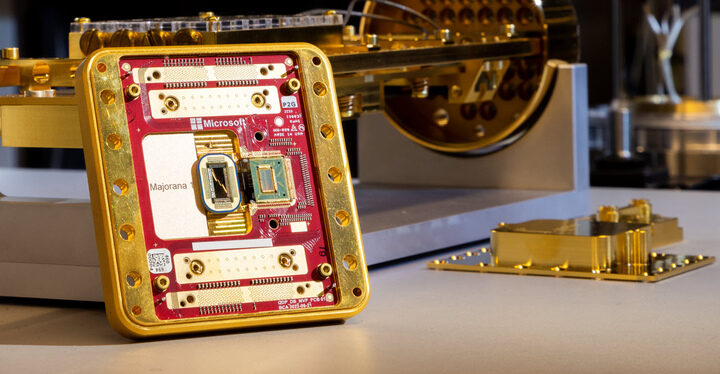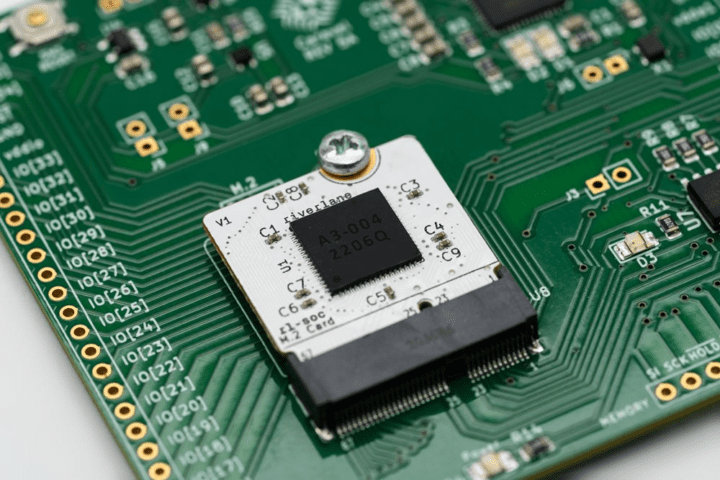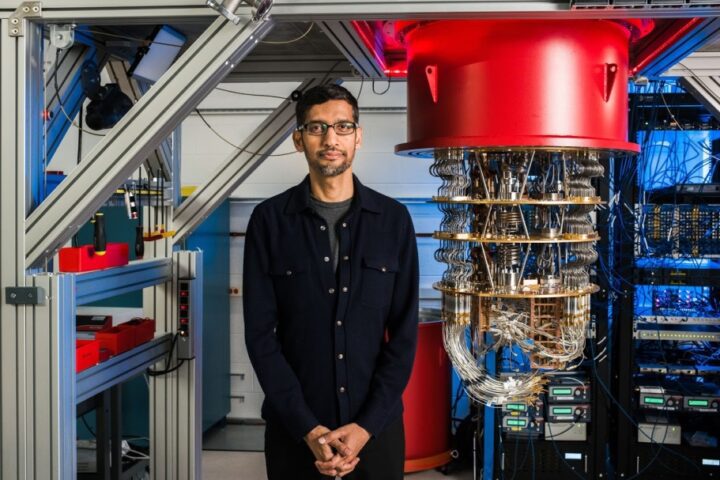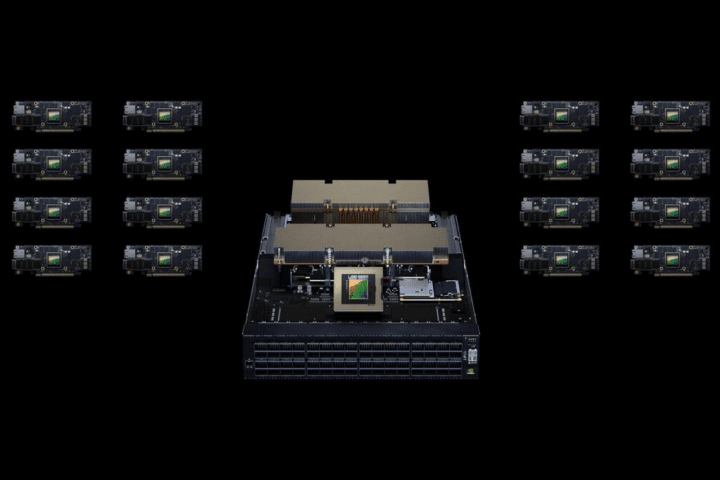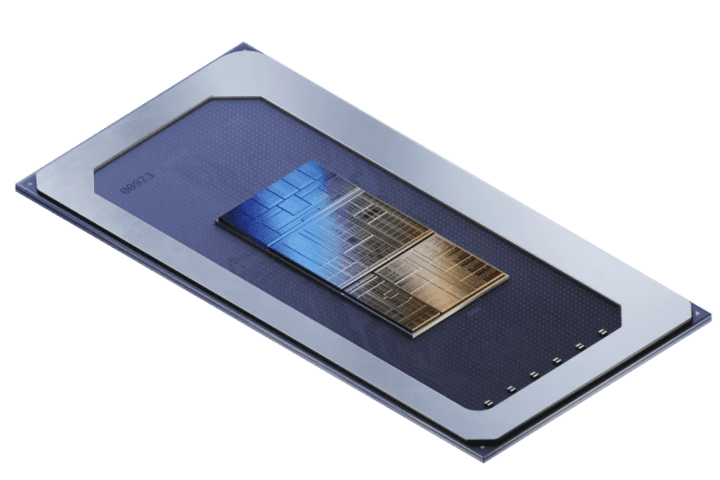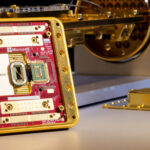Atlantic Quantum, an innovative quantum computing developer, recently unveiled groundbreaking research on their fluxonium-based qubit architecture, setting a new benchmark for superconducting qubit error rates. This pivotal research, peer-reviewed and published in Physical Review X, showcases the potential of the company’s unique superconducting qubit design to execute operations between qubits with unparalleled precision. Stemming from extensive research at MIT, the technology now underpins Atlantic Quantum’s quantum processors.
Leon Ding, co-founder and lead author of the study, commented, “This result marks the first time that the state-of-the-art single- and two-qubit gate performance was advanced with a different type of superconducting qubit since the invention of the more standard transmon qubit in 2007.” Quantum computers, with their potential to revolutionize industries like pharmaceuticals, industrial chemistry, and material science, have been hampered by high error rates. McKinsey projects that by 2035, quantum computing could generate a staggering $1.3 trillion in value. However, the challenges of high error rates and intricate hardware requirements have stymied the practical adoption of quantum computing.
Developing fault-tolerant quantum computers with a novel qubit design and a proprietary control technique, Atlantic Quantum is at the forefront of transforming quantum computing from a mere vision to tangible reality. The team’s research reveals that their qubit architecture can achieve two-qubit gate fidelities with 99.9% accuracy. Reducing error rates is instrumental in achieving fault-tolerance in quantum computing, which in turn impacts the number of qubits needed for error-correction protocols, significantly cutting down on resource overhead.
Bharath Kannan, co-founder and CEO of Atlantic Quantum, stated, “We are building quantum computers based on a new circuit that can address both accuracy and scalability from the ground up, eliminating the typical trade-offs.” The recent achievements of the company have garnered significant attention, with Kannan being recognized in the MIT Technology Review’s 35 Innovators Under 35 list. In August 2023, Atlantic Quantum secured a Direct-to-Phase II contract worth $1.25 million from AFWERX to further refine its fluxonium-based quantum computing hardware, addressing key challenges for the Department of the Air Force (DAF).
The “qubit,” an aluminum superconducting circuit built on silicon chips that encodes data, is the core of a quantum computer. Atlantic Quantum has pioneered a quantum architecture, originating from MIT research, that offers enhanced scalability compared to industry standards used by tech giants like IBM and Google. Although still in their infancy, quantum computers hold promise in diverse applications, from advanced drug discovery to predicting stock market fluctuations.
The urgency of overcoming hardware challenges to realize the full potential of quantum computing was emphasized by Atlantic Quantum CEO Bharath Kannan, who raised $9 million in seed funding for the startup. “With quantum, it’s not a question of if but when, and we need to ensure that ‘when’ isn’t fifty years from now,” Kannan remarked. Currently, the technological architecture of the startup boasts an impressive 99.9% accuracy for a two-qubit circuit.
Similar Posts
Leon Ding highlighted the significance of their findings, noting that their qubit design offers the first major alternative to standard circuits used since 2007. He added that reduced error rates could simplify quantum computers and decrease the number of required circuits. The next goal of the company is to increase the qubit count in their systems while maintaining minimal errors.
Securing a $1.25 million contract to develop quantum processors for national defense, Atlantic Quantum recently announced a collaboration with the Air Force Research Laboratory. The first R&D facility of the startup is located in Cambridge, Massachusetts, and they recently expanded with a subsidiary in Sweden dedicated to chip fabrication.
Given Atlantic Quantum’s hold on key patents, Kannan confidently stated that major tech companies might find it challenging to replicate their designs. Kannan added, “We own a lot of the IP around it, so they can’t. Our method of controlling these qubits is much simpler than the standard.”
AFWERX, an initiative of the US Air Force, aims to foster innovation by providing funding to startups and small businesses for developing future-ready technologies. The AFRL (Air Force Research Laboratory) and AFWERX awarded Atlantic Quantum the contract to harness the company’s fluxonium-based superconducting qubit tech.
With ties to both MIT and Chalmers University, Atlantic Quantum believes their fluxonium approach will outperform the common superconducting transmon method used by industry leaders. Fluxonium-based qubits for similar advantages are also being explored by companies like D-Wave and Alibaba. The highest 2-qubit gate fidelity achieved to date is slightly below 99.9%. It would mark a significant advancement in the field if a new qubit design could push this to 99.99% or higher.
The potential of quantum computing is vast, but the journey to harnessing its full power requires overcoming significant challenges. The future of quantum computing looks promising, with startups like Atlantic Quantum leading the charge. Companies and researchers worldwide are racing to harness its transformative power for the next generation of computing as the quantum realm continues to unravel its mysteries.




